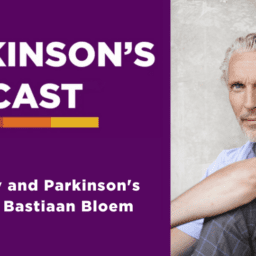Funding quality-of-life research, especially when that research involves exercise, has been part of our Foundation’s mission since its founding in 2004. So, when Professor Bas Bloem, MD, PhD, approached us with his plan for the Slow-SPEED study, we were all in and honored to be the first to sign on.
What is the Slow-SPEED study?
While there are many pharmacological and non-pharmacological treatments for Parkinson’s, they are just that, treatments. To date, there are no disease-modifying interventions proven to slow down disease progression. Perhaps that’s because the underlying disease pathology is already quite advanced when a clinical diagnosis of Parkinson’s can be made. However, what if there were a way to test interventions long before a clinical diagnosis could be made? That’s what this study is all about.
During prodromal Parkinson’s, there are several signs and symptoms that indicate a higher-than-average risk of developing motor symptoms and a clinical diagnosis of Parkinson’s in the future. The ultimate aim of this study, therefore, is to examine whether a remote exercise intervention can slow down the progression of prodromal manifestations of Parkinson’s over a three-year period.
This is the first time this option has ever been tested, and we are excited to be part of the extraordinary team taking this on.
Others affiliated with this study include:
- Radboud University Medical Center, The Netherlands
- Harvard TH Chan School of Public Health
- 23andMe
- Rochester University Center for Health + Technology
- University of Lübeck, Germany
To learn more about this study, we sat down with Professor Bloem and Dr. Sirwan Darweesh, the principal investigator, to discuss the details. We asked them about:
- Prodromal Parkinson’s
- Aims of the study
- The intervention and study timeline
- The role of “23 & Me” in the research study and recruitment process
- The goal number of research participants
- The importance of exercise duration and intensity in Parkinson’s progression
- The biggest challenges of the study
- And more
Want to Learn How, When, and How Much to Exercise to Live Well with Parkinson’s?
Watch this interview we did with Professor Bloem on cognition, mood, and exercise.

















